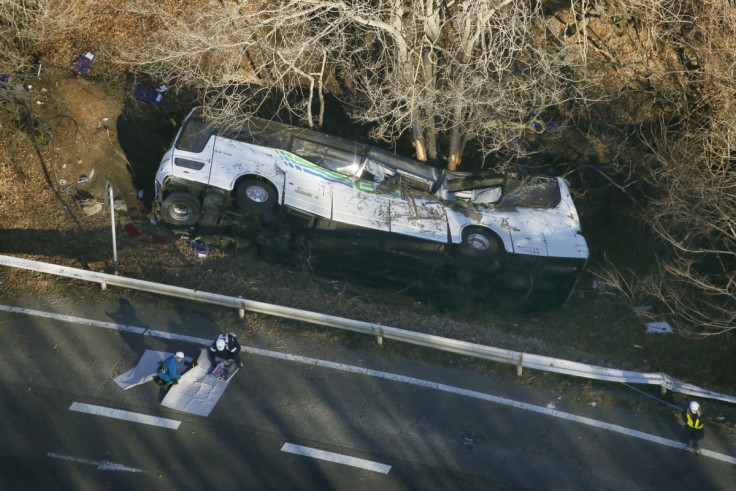At least 14 killed when ski bus flips over guard rail in central Japan

At least 14 people were killed when a bus taking passengers to a ski resort crossed lanes and veered off a mountain road in central Japan. At least 27 people, most of them in their 20s, were injured. There was no snow or ice on the road at the time of the accident, said witnesses.
The bus flipped over as it crashed into a guard rail and landed some three meters (10 feet) into a ditch. Authorities are working to determine the cause of the accident. "We must thoroughly investigate the cause of the accident so that similar accidents won't be repeated," said Chief Cabinet Secretary Yoshihide Suga, adding that the transport ministry has set up a taskforce to examine the crash.
"After I got to sleep there was a thud, the bus suddenly wobbled and I remember banging into my friend on my left," a male college student said on state TV NHK. "The next thing I knew I was outside the bus and I have no idea how I got there."
The bus, run by Tokyo-based budget operator Keyth Tour, was travelling from Tokyo to ski resorts in Nagano prefecture. Nine men, including both drivers, and five women were killed, according to local police, Bloomberg reported.
Keyth Tour President Mankichi Fukuda apologized to the victims, but blamed the bus operator for the accident, and said Keyth would continue operations. "We'll take responsibility with sensitivity in reaching out to the families," he told reporters at his office.
The crash is the worst bus accident in Japan since at least 2012, when seven people died and 39 were injured in a collision on the Kanto-Kanazawa highway in central Japan.
But passengers have been killed more recently in a series of smaller tour bus crashes that experts attribute to harsh working conditions for long-distance drivers, who sometimes fall asleep at the wheel, Associated Press reported.
Seven people were killed in a 2012 crash of a tour bus taking passengers to Tokyo Disneyland.
experts attribute to harsh working conditions for long-distance bus drivers. In some cases, drivers had fallen asleep at the wheel.
© Copyright IBTimes 2025. All rights reserved.






















